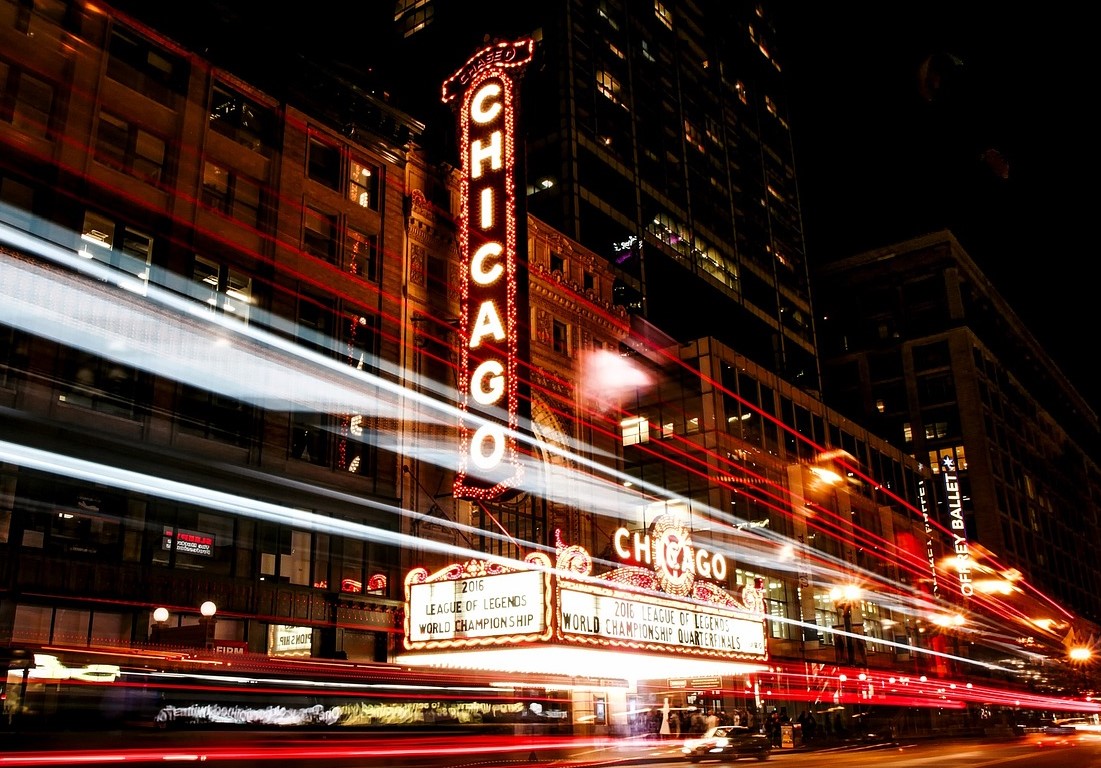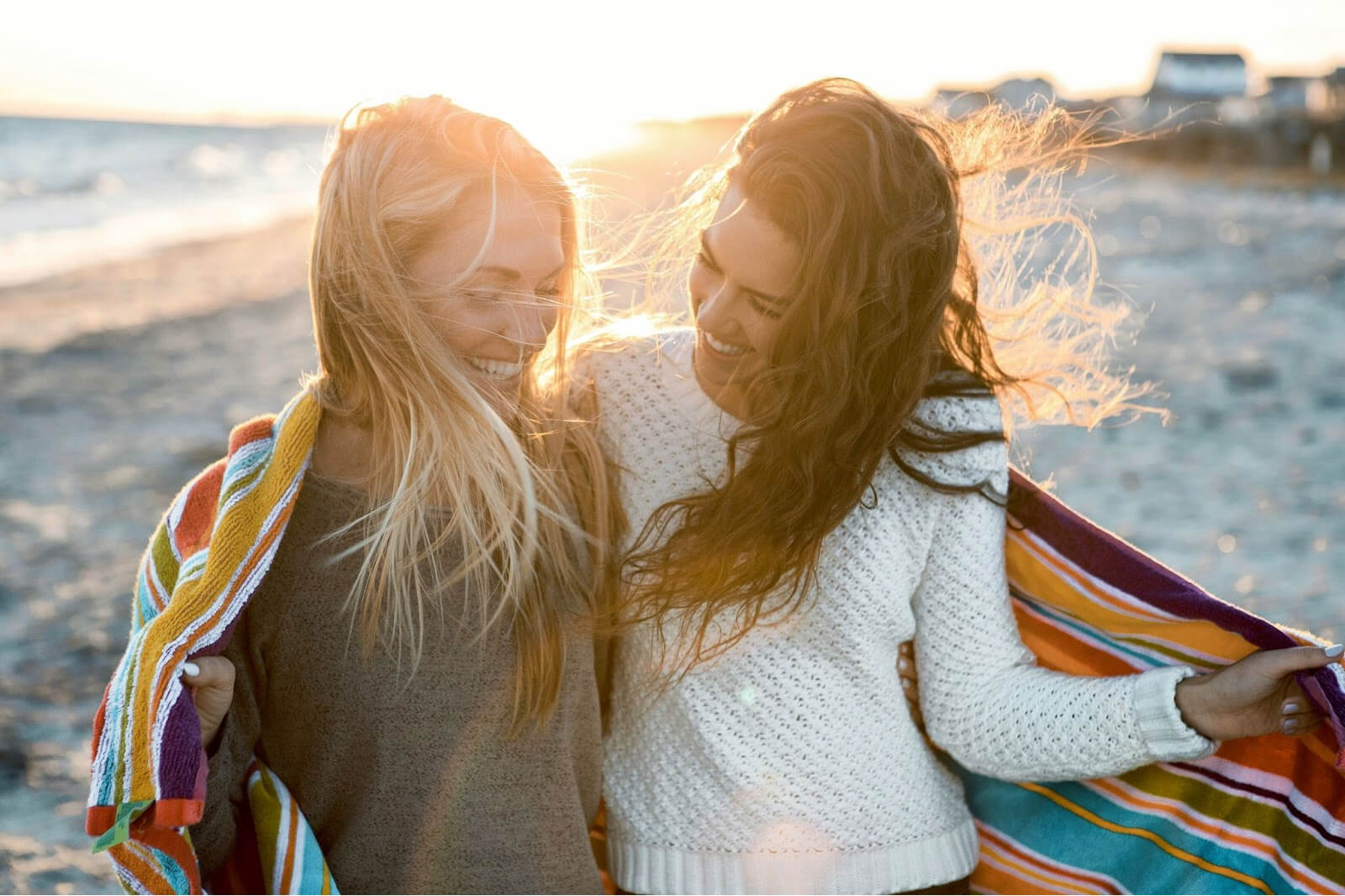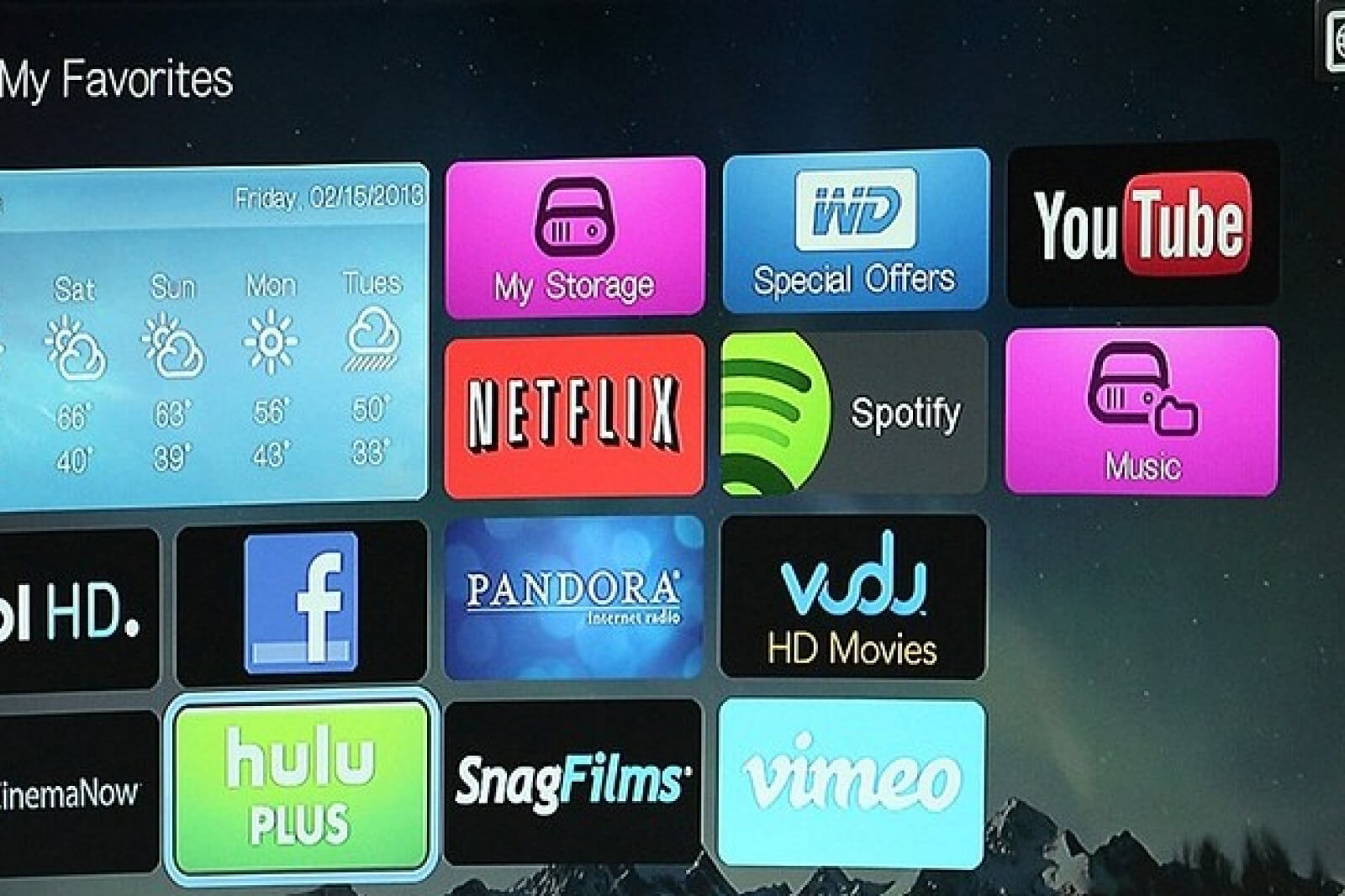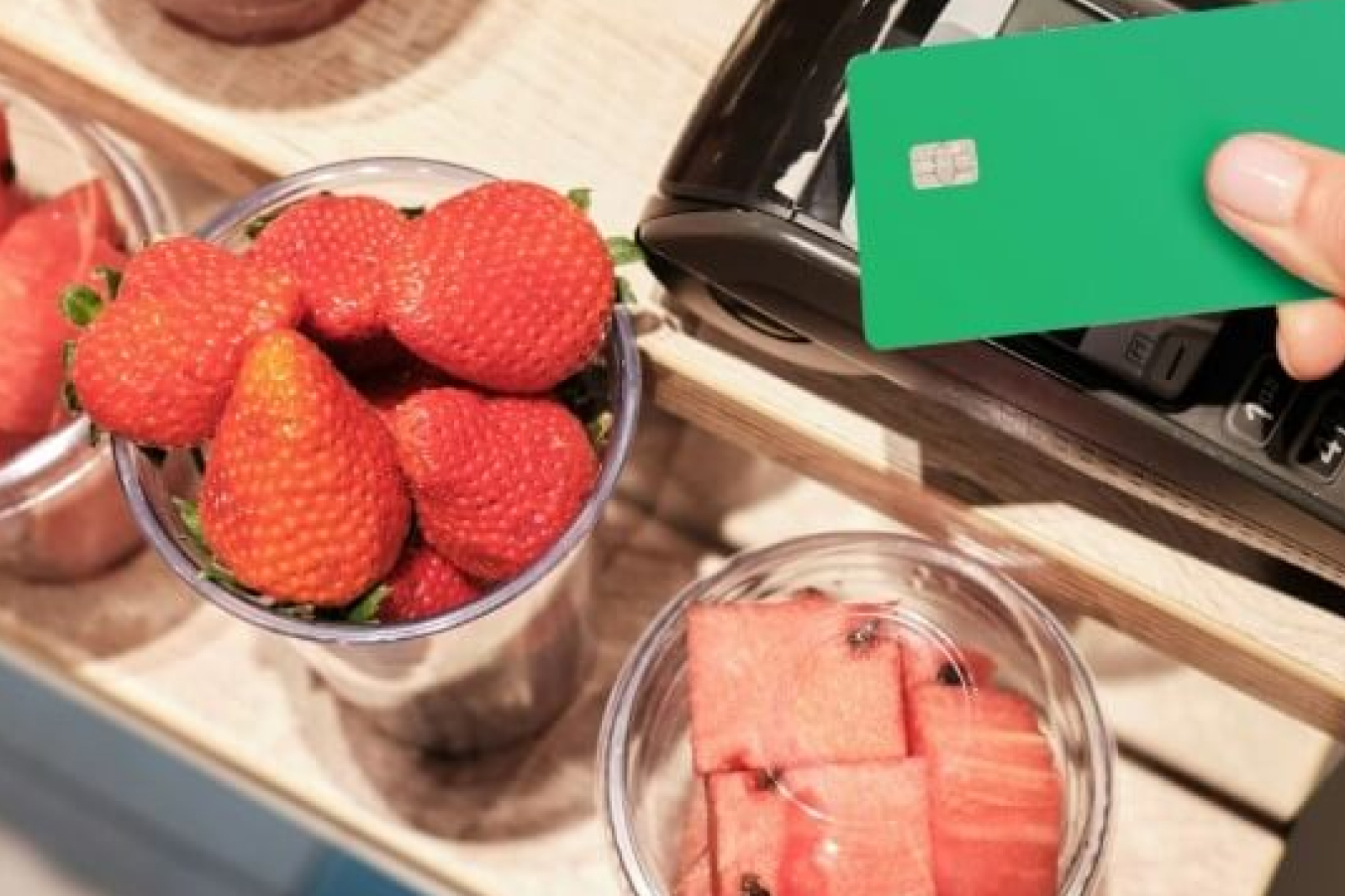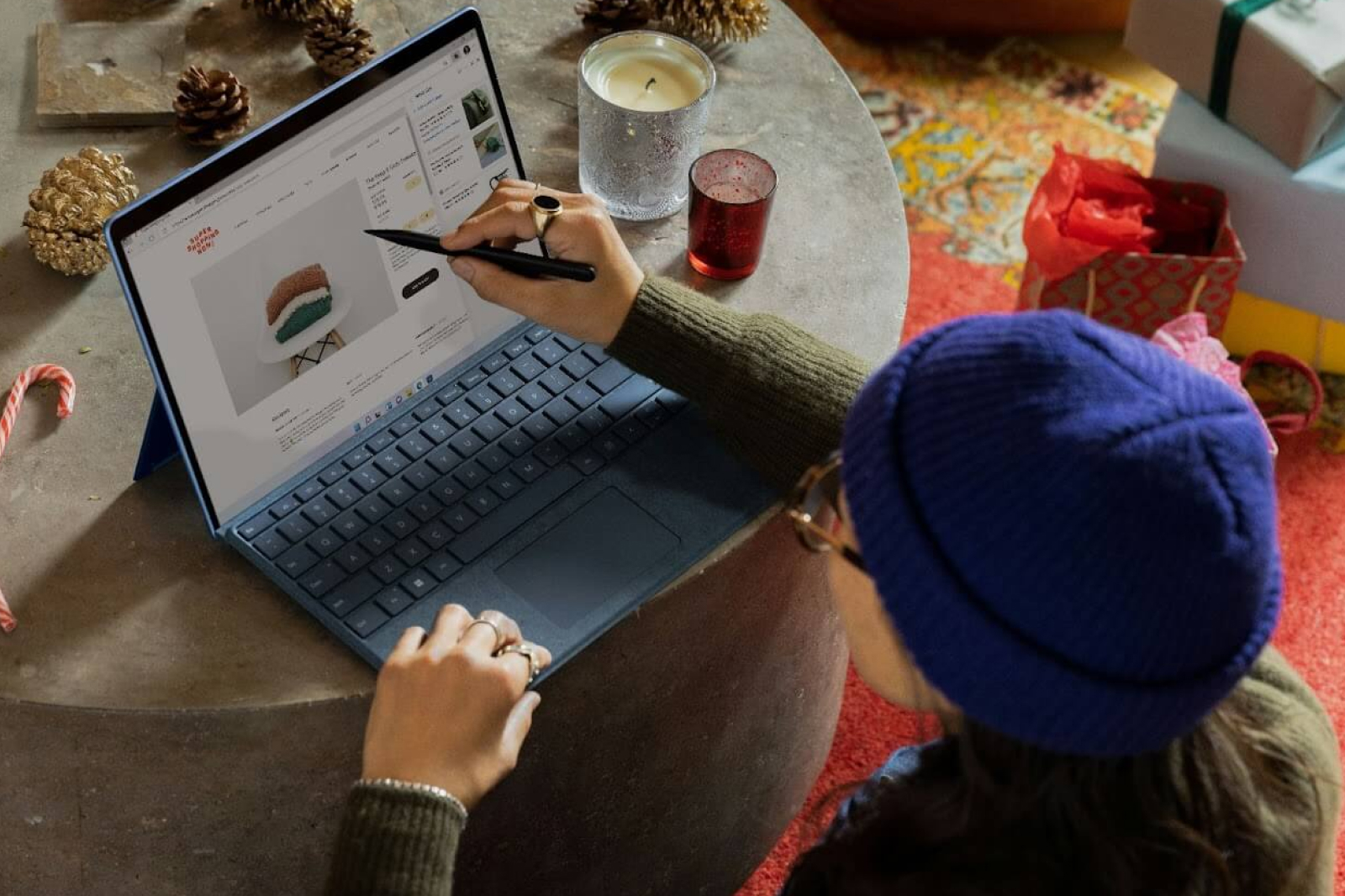Inside the 15 Percent Pledge Pop-Up Shop in Los Angeles

Feb 12 | 2024

15 Percent Pledge Pop-Up Shop
via 15 Percent Pledge Pop-Up Shop
When someone describes an experience as “a movie,” they mean it was euphoric and cinematic…the stuff of dreams. We all want summer to be a movie, our nights out with friends, our weekends in the city. And thanks to the 15 Percent Pledge Pop-Up in LA, I can safely say that mine was.
During the first weekend in February, the 15 Percent Pledge, a nonprofit organization promoting Black businesses, held an IRL shopping experience on a movie set. Located in Paramount Studios, pop-up stores were held on Paramount’s film sets in a reconstructed TV version of New York. Talk about a movie.
Shoppers took photos on the reconstructed brownstone steps and meandered through the artificial neighborhood. On every corner of these movie magic streets, a different shopping experience was curated by Black-owned brands and businesses. From a collection of books curated by Untitled Books in Los Angeles to an interactive shade-matching experience by Fenty Beauty, there was something for everyone.
I made a beeline to the truck serving hot chocolate and beignets, then discovered new Black-owned brands for pretty much everything: Black-owned skincare, Black-owned haircare, Black-owned home decor, and Black-owned clothing brands. They even had a whole store dedicated to one of my favorite LA cool girl brands: Sami Miro Vintage.
Other featured brands included:
- Tracee Ellis Ross’s Pattern Beauty, the haircare brand that does it all for all textures
- 54 Thrones, a chic shea butter brand
- Savant Studios, a cool clothing brand
- Blackstock & Weber loafers, for the ultimate fashion glow up
- Harlem Candle Company scents, for a cozy and conscious home
- and many, many more
It was refreshing to see brands I’d seen online in real life and to discover that brands I was already interested in are Black-owned. It felt like I was part of a community, bolstered by the frankly foreign feeling of being not just represented but catered to by an event.
How to support Black-owned businesses and Black-owned brands
While the experience was a movie, and whimsically shopping around perfectly curated shops is my dream, the most memorable part was the feeling of urgency. We are here, the pop-up seemed to say, because we’re not anywhere else.
Outside, the movie set had a replica of a movie theater – very meta. Listed on the marquee, instead of daily showtimes, were the words “15 Percent is the least you can do.”
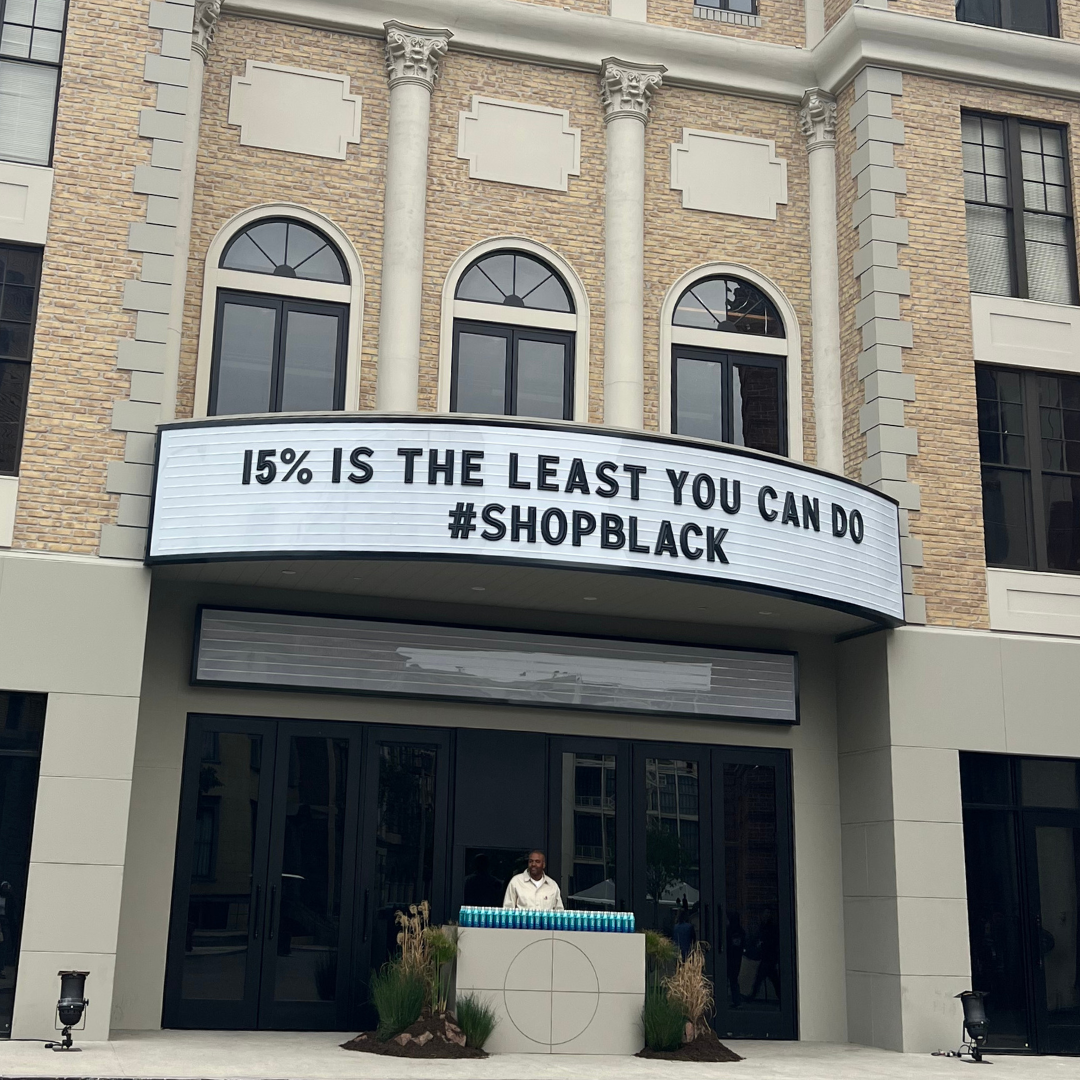
This references the brand’s founding call to action: Black people make up 15% of this country, therefore Black brands should make up 15% of store shelf space.
What is the 15 Percent Pledge by Aurora James?
Born during the resurgence of the Black Lives Matter movement in 2020, the 15 Percent Pledge was born from an Instagram account by Aurora James, founder of Brother Vellies (the brand behind that viral AOC dress). But the Pledge isn’t just about cinematic shopping experiences. It’s a massive force in the movement for racial and economic equality, targeting African American designers and niches like Black-owned detergent companies.
According to their website, their mission is simple: “The Pledge is an invitation to retailers to give their valued community what they are asking for variety and economic equality. The Pledge allows us to learn and grow together, led by a sustainable model for long-term change.
With over 28 retailers, the Pledge has shifted almost $14B of revenue to Black-owned businesses. Retailers that have made the Pledge include: Sephora, Nordstrom, Macy’s Ulta, aren’t The Runway, and more.
The 15 Percent Pledge is just one organization promoting Black-owned businesses. Even Beyoncé has made this part of her mission. In 2020, she and her longtime friend and stylist launched Black Parade Marketplace, a directory of Beyoncé-approved Black-owned businesses across industries.
But these flashy figureheads of the movement are only the beginning. The impact of shopping Black and supporting Black Owned businesses creates stronger communities from within.
How does supporting Black-owned businesses help the economy?
Shopping Black is a vote with your wallet to support a small business rather than a giant corporation. This small choice has far-reaching ripples for the economic empowerment of the Black community and the economy at large.
Only 4% of businesses in the United States are Black-owned — perhaps this is because Black business owners are three times more likely to be rejected for a loan compared to their white counterparts and Black-owned businesses are more likely to be denied credit than businesses owned by any other ethnic group. (Gitnux)
By supporting the Black businesses that have managed to make it in this environment, we create a fertile ground for even more Black business owners to thrive. African American-owned businesses employ over 920,000 people and generate $154.9 billion in annual revenues nationally. This positive impact for the economy would increase if more Black people were empowered to start businesses.
That effort starts with us, demonstrating that we prioritize Black businesses and urging retailers to go out of their way to find and stock Black businesses.
As many industries renege on the promises made in 2020 — from firing DEI executives to canceling Black-led TV shows and movies — organizations like the 15 Percent Pledge are crucial to platform this mission and keep the support of Black-owned businesses from languishing.
Which is all to say: next time you shop, shop Black.
- Tracee Ellis Ross’s Pattern Beauty, the haircare brand that does it all for all textures
- 54 Thrones, a chic shea butter brand
- Savant Studios, a cool clothing brand
- Blackstock & Weber loafers, for the ultimate fashion glow up
- Harlem Candle Company scents, for a cozy and conscious home
- and many, many more
How to support Black-owned businesses and Black-owned brands
While the experience was a movie, and whimsically shopping around perfectly curated shops is my dream, the most memorable part was the feeling of urgency. We are here, the pop-up seemed to say, because we’re not anywhere else. Outside, the movie set had a replica of a movie theater - very meta. Listed on the marquee, instead of daily showtimes, were the words “15 Percent is the least you can do.”




